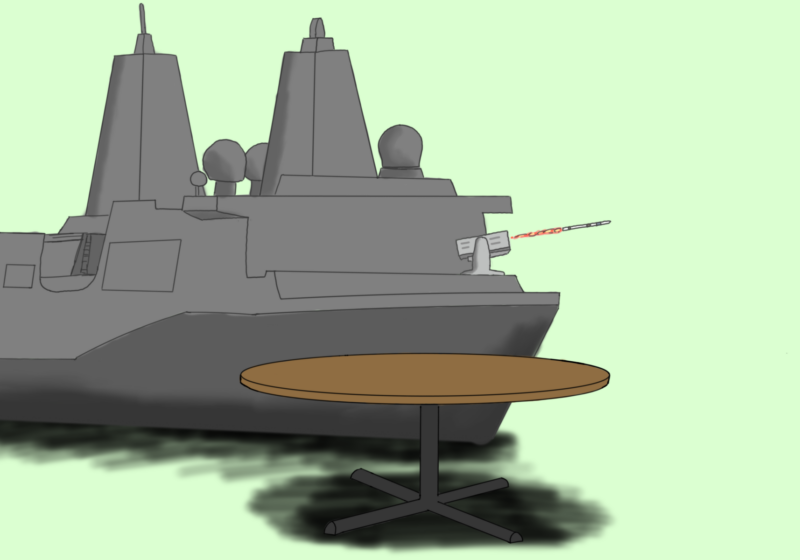The UR community always complains about how lazy and apathetic the students are about current events. As leaders of the future, we must develop ourselves in such a way that we can understand and appreciate what is happening in the world around us. Reading the newspaper and discussing today’s issues will allow us to develop the analytical skills that we need to work towards a better future. However, living in a “bubble of ignorance” will surely cripple our ability to realize our long-term goals.
At the end of the month, the sponsors of the Collegiate Readership Program will evaluate its effect on campus and determine whether or not the program is worth continuing. The goal of the program from test-run to full-time commitment is to always provide students with access to newspapers and current event information free of charge.
The most important reason for implementing this program is to make it easier for students to get their daily dose of current events. Many of us with busy schedules don’t have or don’t make the time to read the newspaper online. Even those of us with the New York Times as our homepage skip over it to check our email before heading to class. The free newspapers for the Collegiate Readership Program are not only for the student who is new to newspapers, but, most importantly, for the student who only finds small chunks of free time during his or her day. Our hope is that during those breaks the student can pull out a newspaper and read it on the spot, which is more convenient than running to the nearest computer. Furthermore, with students’ habits of leaving newspapers behind, it is very likely that the student who forgets to grab a paper first thing in the morning will easily find one located at the nearest lounge spot.
It is very possible that our generation really is getting its news from online distribution, newsletters, blogs and Web sites. Whichever way you choose to read the news, it’s important to remember that debate, discussion and awareness of current events has always been an integral part of our country’s history and culture. Early American publicists like Thomas Paine and Benjamin Franklin were the fathers of the American Revolution. This country would not exist without newspapers because they have helped shape our understanding of politics and cultures that we don’t regularly come in contact with. While newspapers have occupied a precious place in our national development, print circulation has declined as a result of the television, cable, 24-hour news stations and the Internet. However, newspapers have adjusted and adapted to fill their own unique niche in American society. For example, instead of printing full coverage of the stock markets, The Wall Street Journal has begun focusing on more opinion stories, and the Journal is also adjusting its layout to be more compact and easier to read during the morning commute. Both adjustments aim at making it easier to access the news.
The French philosopher Alexis de Tocqueville remarked during his travels through America that “a newspaper is an advisor who does not require to be sought but who comes of its own accord and talks to you briefly every day without distracting you from your private affairs?if there were no newspapers, there would be no common activity.” These words brilliantly illuminate our own intent with the Collegiate Readership Program: to provide students with their daily companion of current events and public opinion, as well as the opportunity to discuss them intelligently.
Whether or not we decide to continue the program at all depends on what you, the students, want. We will use a number of factors including distribution numbers, surveys, etc. to determine the impact the Collegiate Readership Program is having on campus. So, it falls to you to vote for what you want by using or declining to use this service. Convince your friends to follow suit. If the papers are all gone, then we know this program belongs on campus. Otherwise, if we only find full racks, maybe we can assume that students are getting their news from other sources. That’s OK, because we’re only committed to this program if the student body is committed to it. We just want to ensure that we are making every possible option available to students.





